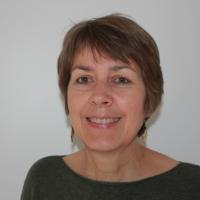Course Overview
Examples of good practice – language didactics and curriculum brought to life
Teachers are an essential part of the future of the Waldorf school movement in general and of creative and sustainable language learning and teaching at Waldorf schools in particular!
Waldorf pedagogy depends on you, the teachers who are interested in learning about and understanding the underlying ideas and concepts of language learning as well as the curriculum suggestions for Waldorf schools that have been developed on the basis of these ideas.
However, it is not enough to learn about the ideas and concepts of the past, our major task for the 21st century will be the development of living and up-to-date practice in Waldorf classrooms of today and tomorrow. As one of the core ideas of Waldorf pedagogy are ‘living concepts’, Waldorf teacher training also has to invite and encourage an ongoing development of good practice in schools around the world.
Hence this course wants to offer examples of good practice of Waldorf foreign language teaching. Practicing teachers share their views and ideas, they describe exercises or projects they have done in class and they talk about the experiences they had. Examples of good practice are a sort of treasure box for inspiring ideas that invite you to think about them, pick some aspects up or develop them further in your own teaching.
You are invited to participate in this sharing by asking questions, leaving comments or even sharing your own example of good practice in this course.
The course is designed as an open market place: contributions will be added in the course of time – whenever I get the chance to meet and interview somebody or when one of the participants has something to offer and share. I have also added some of the inspiring interviews / videos that have been placed in one the courses before. For some colleagues they might be an invitation to have a closer look into the other courses as well.
As always, your feedback is strongly requested and welcomed!
Enjoy the treasures!
Attention!
If you were looking for the examples of and collegial exchange on distance teaching and learning at home, please go to the course
Digital Waldorf: cooperative, creative, collegial
Course Content
- Task based learning (Conrad Kellet)
- TPR and TPRS – an approach for the middle school (David Maconaghie)
- Activities for and experiences with classes 4 to 8 (Angela Hopkins and Vanessa Pohl)
- Cyclical learning processes – the importance of time (Erhardt Dahl)
- Starting creative writing in the middle school (Martyn Rawson)
- Using word games in the language classroom (Ulrike Sievers)
Instructors
Ulrike Sievers was born in the North of Germany. She studied English and Biology and has taught both of these subjects in Waldorf schools with great enthusiasm for over 20 years. Her main interest is in how school education can create a space in which children and young people can grow up in a healthy way, develop a love for nature and the living world and become interested in other people, their cultures and their languages. She has also contributed nationally and internationally to teacher education and offers courses for students at the Waldorf seminar in Hamburg and Stuttgart.


